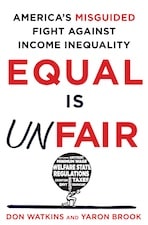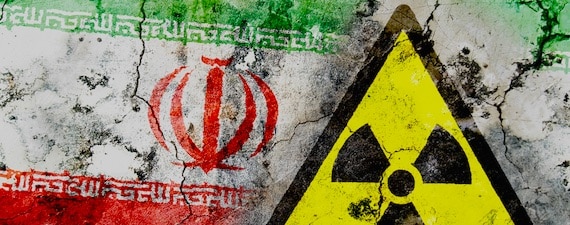The Misunderstood Mullahs
“No, Iran Isn’t Destabilizing the Middle East.” Paul Pillar’s article in The National Interest a month before the Iran nuclear deal was signed attacked critics of the negotiations. Pillar disputed the “badly mistaken myth” that Tehran is “‘destabilizing’ the Middle East or seeking to ‘dominate’ it or exercise ‘hegemony’ over it, or that it is ‘on the march’ to take over the region.” On the contrary, while we might dislike Iran’s conduct — bolstering the Assad regime in Syria, backing Hezbollah in Lebanon, nourishing Hamas in Gaza, dominating what’s left of Iraq, funding and training the Taliban in Afghanistan, and arming Islamist rebels in Yemen — Iran is simply reacting to its circumstances as any other state would. Iran’s distinctive ideological character and stated goals, in other words, are at best peripheral to understanding and evaluating its conduct.
Pillar spent nearly thirty years as a senior intelligence analyst at the Central Intelligence Agency, and holds impeccable academic credentials. He can hardly be dismissed as a fringe figure. Indeed, the gist of his view — that we shouldn’t worry about Iran’s distinctive ideological character — informs the Obama administration’s approach to Iran. The Obama team acknowledges Iran’s pervasive violation of rights domestically, its wholesale backing of Islamist terrorism, and its ominous nuclear program. But these actions have little to do with one another, or with any larger strategic threat. Moreover, despite the weekly “death to America” chants (merely “rhetorical excess,” according to John Kerry) and the stated desire to wipe Israel off the map, Iran’s leaders supposedly care chiefly about “regime survival” and the economic aspirations of their citizens — as if a brutal theocracy, deep down, wants what’s best for its people. On the unstated premise that everyone in politics has a price, Obama has even suggested that the nuclear deal could entice Iran to improve its conduct while taking on its “rightful role” in the community of nations.
Ilan Berman, however, believes that the derivation of Iran’s conduct from its ideology is missing from Washington policy discussions. In Iran’s Deadly Ambition, Berman argues that the fundamental problem with Iran is not its nuclear quest, but the regime itself: Tehran is animated by “an uncompromising religious worldview that sees itself at war with the West.”
During the tumultuous decade of the 1980s, as [Ayatollah] Khomeini’s revolutionaries consolidated power at home, the principle of “exporting the revolution” became a cardinal regime priority. Its importance was demonstrated in the fact that, despite the expense of a bloody, grinding eight-year war with Saddam Hussein’s Iraq, the fledgling Islamic Republic sunk colossal resources into becoming a hub of “global resistance.”
Three decades later, Tehran remains committed to this vision. Even as we negotiate with Iran over its nuclear program, its leaders are “busy translating their vision of world influence into action.”
Berman offers a measured, data-rich survey of Iran’s jihadist ambition, an ambition encompassing far more than the nuclear program. The jihadist group Lebanese Hezbollah (literally, “army of Allah”) was founded with Tehran’s support in the mid 1980s to implement Khomeini’s political theory of clerical rule. Hezbollah has become Iran’s main proxy force in Syria. Iraq, Europe, and Africa. Citing reports compiled by the State Department, Berman shows that Iranian sponsorship of global terrorism continues unabated.
In Iraq, Tehran backed insurgents that undermined and killed American forces. Over time, the new Baghdad government fell under Tehran’s dominion. In Afghanistan, Iran lavished millions of dollars to buy the loyalty of government officials: five years ago, Hamid Karzai, the president of Afghanistan at the time, admitted to accepting a $2 million payoff from Tehran. And lately, Iran has bolstered the resurgent Taliban with shipments of arms, ammunition, rocket-propelled grenades, mortars, and plastic explosives. In Syria, Iran continued to back the Assad regime, even while Tehran was subject to severe economic sanctions.
Iran advances its agenda, Berman shows, through international enablers, notably China and North Korea. From Pyongyang, which now possesses nuclear weapons, Iran received technological know-how and help procuring materials for its own nuclear program. Beijing relies heavily on Iranian natural gas and petroleum, a trade relationship that has yielded diplomatic benefits for Tehran. China, along with Russia, frequently blocked the imposition of U.N. sanctions on Iran’s nuclear program. To circumvent economic sanctions, Iran has found willing allies in Latin America, where its diplomatic footprint has grown. Venezuela, for instance, abetted Tehran in channeling foreign currency through an Iranian-owned local bank.
Berman describes the complex, wide-ranging web of political schemes, diplomatic stratagems, and lethal campaigns, military and terrorist, radiating from Tehran. Examine that web, work through the implications, and it becomes clear that Iran is defined by its ideological vision. Yet, as Berman notes, Washington ignores Tehran’s character, resulting in an Iran policy predicated more on “aspiration than reality.”
Iran’s Deadly Ambition provides a superb, albeit alarming portrait of the Iranian regime. It is alarming, not merely because of the scale of Iran’s militant ambition, but also because the prevailing American assessment of the regime is so disconnected from abundant, plainly evident facts. By fixing our attention on Iran’s ideological character, this book can help anchor U.S. policy in aspirations that accept rather than deny reality.




















